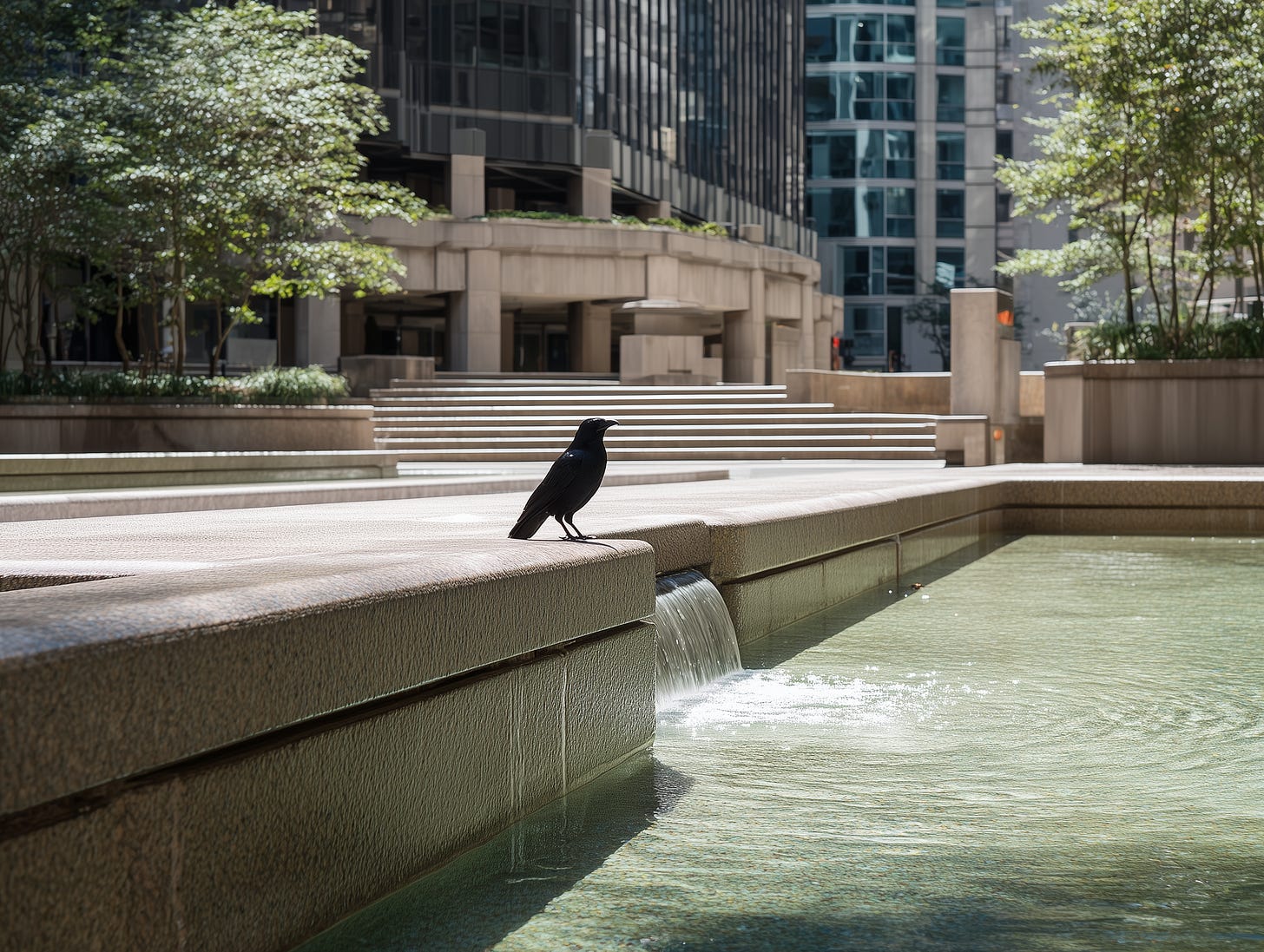Grasslight
Royston sat on the warm stone edge of the fountain and watched the water fall in straight lines and break. It was Sunday. The towers over Bay and King were quiet, glass masks without faces. His laptop was in his bag. His phone lay face down beside him. In the office behind him, the model he had built waited on a server and hummed.
He should have been ups…




